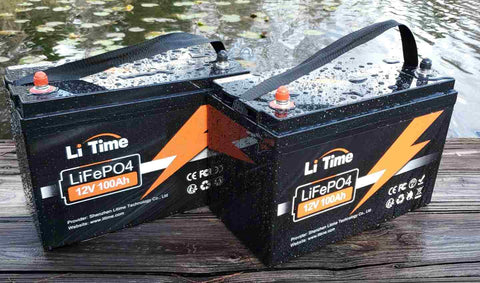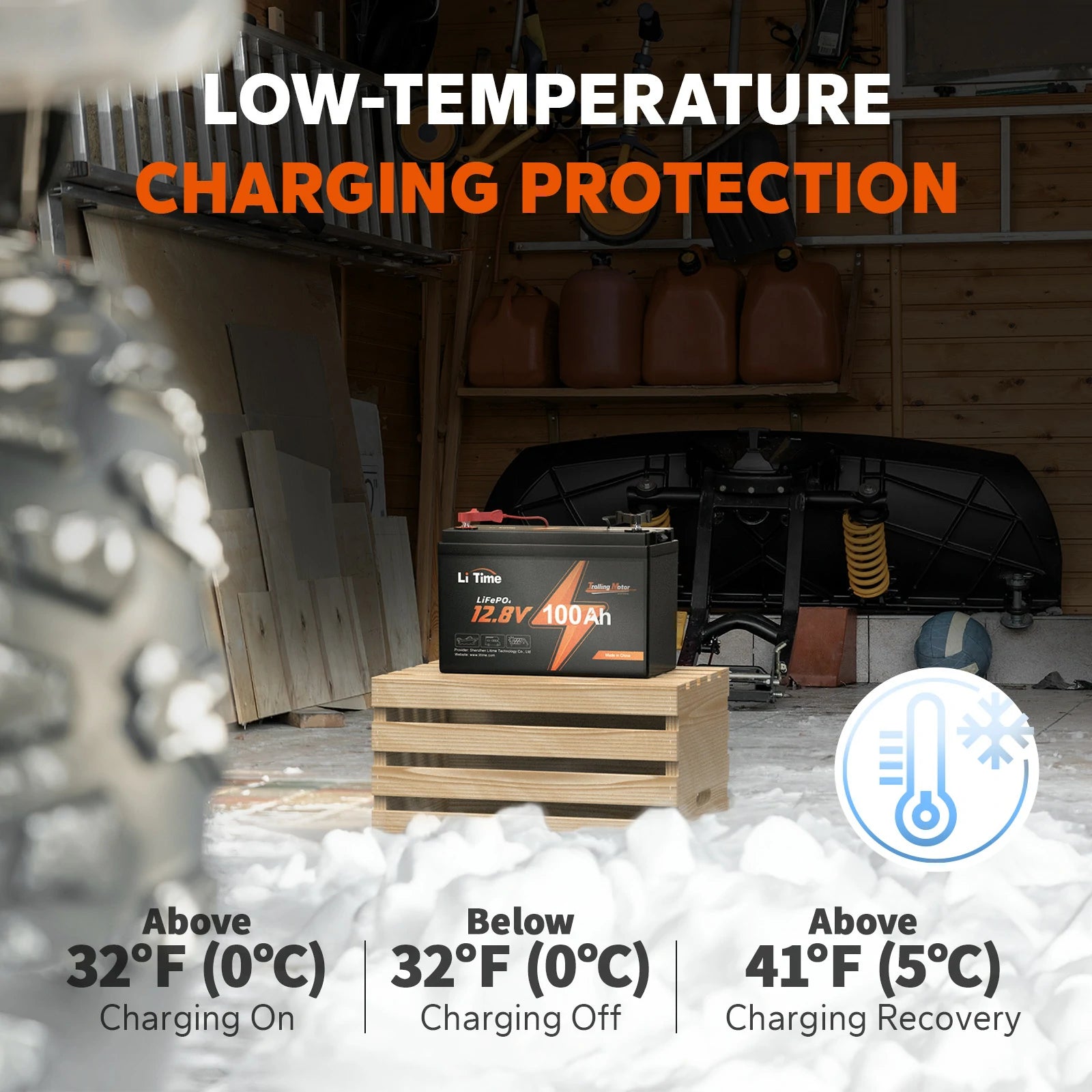As the boating season winds down and winter approaches, many boat owners face the dilemma of what to do with their marine batteries. Leaving marine batteries in a boat over winter can be a point of concern for those who want to ensure the longevity and reliability of their boat's electrical system. In this article, we will explore the considerations and best practices for storing marine batteries during the winter months to help you make informed decisions and protect your investment.
Understanding Marine Batteries
Marine batteries are designed to power the electrical systems on boats, yachts, and other marine vehicles. These batteries are specially engineered to withstand the harsh conditions of marine environments, including constant vibration, heavy loads, and exposure to moisture. There are several types of marine batteries, each with its own characteristics and best uses:
Starting Batteries: These batteries are designed to provide a short burst of high power to start the boat's engine. They deliver a large amount of current in a short period and are not intended for deep discharges. They are usually labeled as "cranking" or "starting" batteries.
Deep Cycle Batteries: Deep cycle batteries are designed to provide a steady amount of power over a long period. They are built to withstand frequent charging and discharging cycles and are ideal for powering accessories such as trolling motors, lights, and appliances on board. They are labeled as "deep cycle" or "marine deep cycle" batteries.
Dual-Purpose Batteries: These batteries are a hybrid of starting and deep cycle batteries. They can provide high cranking amps to start an engine while also being able to handle deep discharges for powering accessories. They are a versatile option for smaller boats with limited space for multiple batteries.
Suggest reading: Marine Deep Cycle VS Starting Batteries

Preserving Marine Batteries During Winter
No battery is impervious to the weather, and extreme temperatures can impact all types of batteries. From conventional starting batteries to deep cycle house batteries, improper winter storage can lead to damage.
Few things are as disheartening as reaching the marina, eager to use your boat, only to discover a dead battery. Whether it simply needs a "wake-up" or requires complete repair or replacement, this situation can be avoided. It's essential to ensure that your boat and its batteries are stored and maintained correctly throughout the year, providing peace of mind when the next season begins.

What Happens If Your Marine Batteries Freeze?
If marine batteries freeze, the consequences can be damaging. When a battery freezes, the water inside it expands, potentially causing the casing to crack or the internal plates to warp or break. This can lead to irreversible damage and render the battery unusable.
Additionally, freezing temperatures can reduce the battery's ability to hold a charge and can diminish its overall performance. Freezing can also cause the electrolyte solution inside the battery to become stratified, leading to uneven charging and discharging, further impacting the battery's capacity and lifespan.
To prevent marine batteries from freezing, it's crucial to store them in a location where they are shielded from extreme cold temperatures. If the boat is stored in an area where freezing is a concern, it's advisable to remove the batteries and store them in a temperature-controlled environment. Additionally, ensuring that the batteries are fully charged before storage can help minimize the risk of freezing, as a fully charged battery is less susceptible to freezing than a partially charged one.
While it is rare, specific conditions can lead to the complete freezing of lead-acid marine batteries. This occurs when the battery is nearly depleted of power, triggering a chemical process that dilutes the liquid electrolyte within the batteries.
The diluted electrolyte, with its higher water content, becomes more susceptible to freezing. If freezing occurs, it can cause damage to the battery cells and the battery case due to expansion. Although different types of lead-acid batteries have varying freezing points, all are adversely affected by cold weather.
In contrast, lithium-ion batteries are less affected by cold weather and typically do not freeze under most conditions. In fact, LiTime LiFePO4 Batteries will not experience adverse operating effects until temperatures reach subzero levels.
Moreover, when utilizing conventional lead-acid batteries, a battery maintainer can be employed for prolonged periods of battery storage. This device ensures a consistent low-level charge on the batteries, helping to prevent freezing. The gradual trickle charge delivers a steady supply of energy, compensating for the natural energy loss caused by cold temperatures. Additionally, battery maintainers incorporate intelligent technology to avert overcharging and other hazardous operating conditions. Even when leaving batteries in a boat connected to a battery maintainer, it's crucial to always disconnect them from the boat's wiring.
Preparing Marine Batteries for Winter Storage
When your boat is not in use, it's essential to disconnect your marine batteries from the electrical system. A battery disconnect switch integrated into your boat's electrical setup can effectively cut power to the batteries, allowing essential systems to draw power while preventing a slow energy drain during extended periods of inactivity.
For winter storage, the best practice is to entirely remove the marine batteries from your boat and store them in a location where they won't be exposed to freezing temperatures. This ensures that the batteries remain at suitable temperatures throughout the winter and are shielded from severe weather. Furthermore, removing the batteries provides the opportunity to easily attach a battery maintainer. It's important to note that lead-acid batteries can release gas, even when disconnected, and therefore need to be stored in a well-ventilated area, away from living spaces.
On the other hand, LiTime lithium marine batteries are notably more resilient in cold weather. In most winter conditions, it's advisable to fully charge these batteries and use the battery disconnect switch when the boat is not in use. However, if temperatures are expected to drop below -15℉, it's recommended to remove the batteries and store them in a climate-controlled environment. These batteries can be stored indoors since they are non-toxic, fully sealed, and do not release gas.
Charging and Storing Marine Batteries in Winter
Ensuring your boat is ready for spring use requires understanding how to maintain your batteries' charge during the winter months. For traditional lead-acid batteries, allowing them to sit without a charge, particularly in cold conditions, can lead to permanent damage and a shortened battery life. To prevent this, a battery maintainer can be employed to safeguard the batteries and keep them in optimal condition.
While lead-acid batteries require assistance to maintain their charge, lithium batteries typically do not suffer significant energy loss over time. Under normal conditions, LiTime LiFePO4 batteries experience only a 2-3% monthly charge loss when stored above subzero temperatures, allowing them to be stored disconnected and without a battery maintainer during winter.
In instances where batteries are exposed to extreme cold or prolonged storage, a complete recharge may be necessary. It's advisable to bring the batteries to a temperature above freezing before attempting to recharge them, as charging at below-freezing temperatures can result in damage and reduced lifespan. This is particularly important for LiTime cold weather series lithium batteries, as their Battery Management System (BMS) equipped with low-temperature charging protection function prevents charging if the internal temperature is too low, requiring them to be brought to a temperature above 25°F for recharging.

LiTime 12V 100Ah Lithium Battery for Trolling Motor
Winter Storage Recommendations for LiTime Batteries
The winterization process for LiTime Batteries is straightforward. Simply ensure the battery is fully charged and then disconnect it from the electrical system. For those in milder climates, it's generally safe to leave the batteries in the boat during storage. However, in areas where subzero temperatures are a concern, it's advisable to remove the batteries and store them in a dry, temperature-controlled environment. During storage, LiTime Batteries typically experience a charge loss of just 2-3% per month, with 75-80% of their capacity remaining even after six months.
Charging, maintaining, and storing boat batteries for the winter need not be complex, but it is a critical step in ensuring a functional power system come springtime. By following these straightforward guidelines, your boat's marine batteries can safely endure the winter season.
Conclusion
In conclusion, while it is possible to leave marine batteries in a boat over winter, it is not without risks. The best course of action depends on individual circumstances, including access to a climate-controlled storage area and the ability to provide proper maintenance. By understanding the factors at play and following best practices for winter battery storage, boat owners can ensure that their marine batteries remain in good condition and ready for use when the next boating season arrives.
Taking the time to properly store marine batteries during the winter can extend their lifespan, minimize the need for premature replacements, and ultimately contribute to a more enjoyable and trouble-free boating experience.








